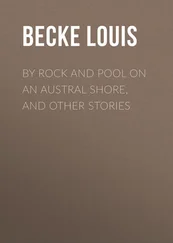Люциус Шепард - Eternity and Other Stories
Здесь есть возможность читать онлайн «Люциус Шепард - Eternity and Other Stories» весь текст электронной книги совершенно бесплатно (целиком полную версию без сокращений). В некоторых случаях можно слушать аудио, скачать через торрент в формате fb2 и присутствует краткое содержание. Город: New York, Год выпуска: 2005, ISBN: 2005, Издательство: Thunder's Mouth Press, Жанр: Фантастика и фэнтези, prose_magic, на английском языке. Описание произведения, (предисловие) а так же отзывы посетителей доступны на портале библиотеки ЛибКат.
- Название:Eternity and Other Stories
- Автор:
- Издательство:Thunder's Mouth Press
- Жанр:
- Год:2005
- Город:New York
- ISBN:978-1-560-25662-5
- Рейтинг книги:5 / 5. Голосов: 1
-
Избранное:Добавить в избранное
- Отзывы:
-
Ваша оценка:
- 100
- 1
- 2
- 3
- 4
- 5
Eternity and Other Stories: краткое содержание, описание и аннотация
Предлагаем к чтению аннотацию, описание, краткое содержание или предисловие (зависит от того, что написал сам автор книги «Eternity and Other Stories»). Если вы не нашли необходимую информацию о книге — напишите в комментариях, мы постараемся отыскать её.
“Lucius Shepard’s stories a jungles — densely alive, sometimes mysterious, often gorgeous, and always dangerous.” — Katerine Dunn, author of Geek Love
Eternity and Other Stories — читать онлайн бесплатно полную книгу (весь текст) целиком
Ниже представлен текст книги, разбитый по страницам. Система сохранения места последней прочитанной страницы, позволяет с удобством читать онлайн бесплатно книгу «Eternity and Other Stories», без необходимости каждый раз заново искать на чём Вы остановились. Поставьте закладку, и сможете в любой момент перейти на страницу, на которой закончили чтение.
Интервал:
Закладка:
“Why are you doing this?” Chemayev asked. “Is there a purpose, or is it merely an exercise?”
“I’m trying to instruct you,” said Polutin. “I’m trying to show you who you are. I think you have forgotten some important truths.”
Chemayev drew a steadying breath, let it out with a dry, papery sound. “I know very well who I am, but I’m confused about much else.”
“It won’t hurt you to listen.” Polutin ran a finger along the inside of his collar to loosen it and addressed March. “Why does Viktor hide his cautious nature from himself? Perhaps he doesn’t like what he sees in the mirror. I’ve known men who’ve cultivated a sensitive self-image in order to obscure the brutish aspects of their character. Perhaps the explanation is as simple as that. But I think there’s more to it. I suspect it may be for him a form of practice. As I’ve said, Viktor and Yuri have much in common… most pertinently, a talent for self-deception. I believe it was the calculated development of this ability that led Yuri to understand the concept of deception in its entirety. Its subtleties, its potentials.” Polutin shifted his bulk, his belly bumping against the edge of the table, causing vodka to slosh in all the glasses. “At any rate, I think I understand how Viktor manages to hide from himself. He has permitted himself to fall in love with his prostitute—or to think he >has fallen in love. This affords him the illusion of incaution. How incautious it must seem to the casual eye for a man to fall in love with a woman he cannot possibly have. Who lives in another man’s house. Whom he can see only for an hour or two in the mornings, and the odd vacation. Who is bound by contract to spend the years of her great beauty fucking strangers. Is this a tactical maneuver? A phase of Viktor’s development? A necessary step along the path toward some larger, more magical duplicity?… Or could it be a simple mistake? A mistake he is now tempted to compound, thus making himself more vulnerable than ever.” He spread his hands, expressing a stagy degree of helplessness. “But these are questions only Viktor can answer.”
“I bet I’m going to like working for you,” March said. “You’re a right interesting fellow.”
“Nobody likes working for me. If you doubt this, ask Viktor.” Polutin locked his hands behind his head, thrusting out his belly so that it overlapped the edge of the table; he looked with unwavering disapproval at Chemayev. “Now you may go. When you’ve regained your self-control, come back and drink some more. I’m told the entertainment this evening will be wonderful.”
The countertop of the bar in the lounge adjoining the theater was overlaid with a mosaic depicting a party attended by guests from every decade of the Twentieth Century, all with cunningly rendered faces done in caricature, most unknown to Chemayev, but a few clearly recognizable. There was Lavrenty Pavlovich Beria, the bloody-handed director of the NKVD under Stalin, his doughy, peasant features lent a genteel air by rimless pince-nez. He was standing with a man wearing a Party armband and a woman in a green dress—Beria was glancing up as if he sensed someone overhead was watching him. Elsewhere, a uniformed Josef Stalin held conversation with his old pal Kruschev. Lenin and Gorbachev and Dobrynin stood at the center of small groups. Even old Yeltsin was there, mopping his sweaty brow with a handkerchief. Looking at the mosaic, Chemayev, sick with worry, felt he was being viewed with suspicion not only by his boss, but by these historical personages as well. It wasn’t possible, he thought, that Polutin could know what he was planning; yet everything he’d said indicated that he did know something. Why else all his talk of disappearances, of Larissa and vulnerability? And who was the Irishman with him? A paid assassin. That much was for sure. No other occupation produced that kind of soulless lizard. Chemayev’s heart labored, as if it were pumping something heavier than blood. All his plans, so painstakingly crafted, were falling apart at the moment of success. He touched his money belt, the airline tickets in his suit pocket, half-expecting them to be missing. Finding them in place acted to soothe him. It’s all right, he told himself. Whatever Polutin knew, and perhaps it was nothing, perhaps all his bullshit had been designed to impress his new pet snake… whatever he thought he knew, things had progressed too far for him to pose a real threat.
He ordered a vodka from the bartender, a slender man with dyed white hair and a pleasant country face, wearing a white sweater and slacks. The room was almost empty of customers, just two couples chattering at a distant table. It was decorated in the style of an upscale watering hole—deep comfortable chairs, padded stools, paneled walls—but the ambiance was more exotic than one might expect. White leather upholstery, thick white carpeting. The paneling was fashioned of what appeared to be ivory planks, though they were patterned with a decidedly un-ivory-like grain reminiscent of the markings on moths’ wings; the bar itself was constructed of a similar material, albeit of a creamier hue, like wood petrified to marble. The edging of the glass tabletops and the frame of the mirror against which the bottled spirits were arrayed—indeed, every filigree and decorative conceit—were of silver, and there were glints of silver, too, visible among the crystal mysteries of the chandeliers. In great limestone fireplaces at opposite ends of the room burned pearly logs that yielded chemical blue flames, and the light from the chandeliers was also blue, casting glimmers and reflections from every surface, drenching the whiteness of the place in an arctic glamour.
Mounted above the bar was a television set, its volume turned so low that the voices proceeding from it were scarcely more than murmurs; on the screen Aleksander Solzhenitsyn was holding forth on his weekly talk show, preaching the need for moral reform to a worshipful guest. Amused to find the image of the Nobel Laureate in a place whose moral foundation he would vehemently decry, Chemayev moved closer to the set and ordered another vodka. The old bastard had written great novels, he thought. But his sermons needed an editor. Some liked them, of course. The relics who lived in the krushovas sucked up his spiritual blah blah blah. Hearing this crap flow from such a wise mouth ennobled their stubborn endurance in the face of food shortages, violent crime, and unemployment. It validated their mulelike tolerance, it gave lyric tongue to their drunken, docile complaining. Solzhenitsyn was their papa, their pope, the guru of their hopelessness. He knew their suffering, he praised their dazed stolidity as a virtue, he restored their threadbare souls. His words comforted them because they were imbued with the same numbing authority, the same dull stench of official truth, as the windbag belches of the old party lions with dead eyes and poisoned livers whom they had been conditioned to obey. You had to respect Solzhenitsyn. He had once been a Voice. Now he was merely an echo. And a distorted one at that. His years in exile might not have cut him off from the essence of the Russian spirit, but they had decayed his understanding of Russian stupidity. People listened, sure. But they heard just enough to make them reach for a bottle and toast him. The brand of snake oil he was trying to sell was suited only for cutting cheap vodka.
“Old Man Russia.” Chemayev waved disparagingly at the screen as the bartender served him, setting the glass down to cover Beria’s upturned face. The bartender laughed and said, “Maybe… but he’s sure as shit not Old Man Moscow.” He reached for a remote and flipped through the channels, settling on a music video. A black man with a sullen, arrogant face was singing to tinny music, creating voluptuous shapes in the air with his hands—Chemayev had the idea that he was preparing to make love to a female version of himself. “MTV,” said the bartender with satisfaction and sidled off along the counter.
Читать дальшеИнтервал:
Закладка:
Похожие книги на «Eternity and Other Stories»
Представляем Вашему вниманию похожие книги на «Eternity and Other Stories» списком для выбора. Мы отобрали схожую по названию и смыслу литературу в надежде предоставить читателям больше вариантов отыскать новые, интересные, ещё непрочитанные произведения.
Обсуждение, отзывы о книге «Eternity and Other Stories» и просто собственные мнения читателей. Оставьте ваши комментарии, напишите, что Вы думаете о произведении, его смысле или главных героях. Укажите что конкретно понравилось, а что нет, и почему Вы так считаете.












